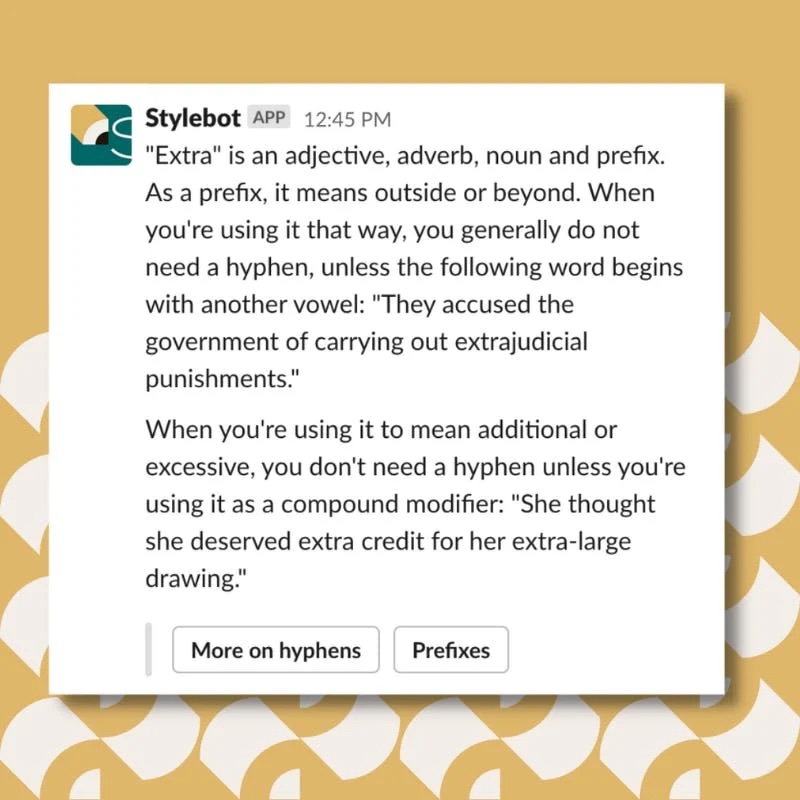The word extra is, well, extra. As an adjective, adverb, noun and prefix, it serves many functions. It’s having its moment right now as an adjective in phrases such as, “That’s so extra.” And its many meanings are a good reminder as to why punctuation matters.

Take the phrase “extra large shirt.” If you have an “extra large shirt,” you have an additional shirt that is a size large. If you have an “extra-large shirt,” though, you have one shirt that is size extra large. There is not one definitive set of rules for using hyphens, but they are often needed for clarity.
A space, or lack thereof, can be just as important. “Extraordinary” and “extra ordinary,” for example, have opposite meanings. In “extraordinary,” “extra” is serving as a prefix that means outside or beyond. So “extraordinary” means beyond ordinary or exceptional. “Extra ordinary,” meanwhile, means very ordinary.
Before you go: We would be extraordinarily grateful if you would take an extra few minutes out of your day to share feedback with us so we can improve our Writing Tips newsletter. And if you’re feeling extra generous, please leave a testimonial that we can share on social media.
Thank you in advance!
💬 Need more tips?
Want to get writing tips like these on demand? Try Stylebot for free.
📝 About Stylebot
Stylebot helps media professionals save time without sacrificing quality by answering copy editing questions on Slack and Microsoft Teams. We’re on a mission to make editing faster, easier and more fun ✨Lean more about Stylebot or follow us on Twitter and Instagram.
